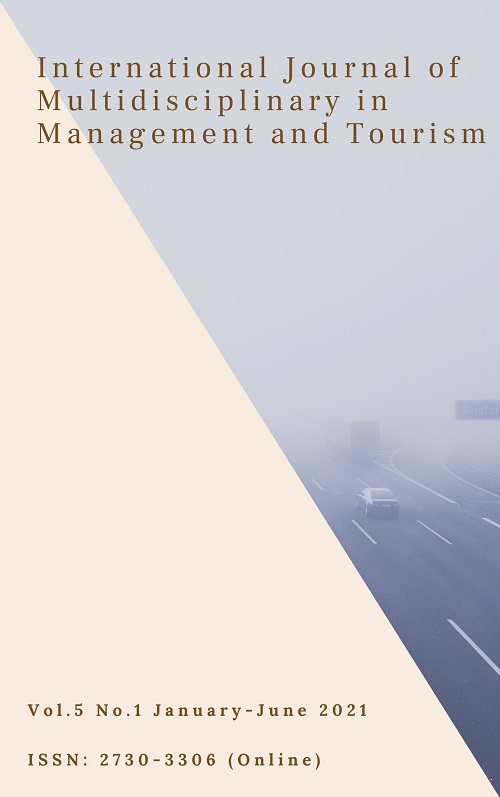Approaches to Morning Glory Supply Chain Management of Tung Yee Peng Community, Ko Lanta District, Krabi Province
Main Article Content
Abstract
The study is aimed to study the Morning Glory Supply Chain Model and to investigate the proper Morning Glory Supply Chain Model for Tung Yee Peng Community, Ko Lanta District, Krabi Province. The study was conducted using the area survey and discussion with a community head and Tung Yee Peng farmers and subsequently to study and design Tung Yee Peng Morning Glory Supply Chain using Soft System Methodology (SSM) (Checkland, P. (2000). Results revealed that the Morning Glory Supply Chain Model was indeed functional. The model of Tung Yee Peng Morning Glory Supply Chain was started with the Upstream Level, Tung Yee Peng farmers cultivating and harvesting their morning glory and delivering them to the distributor agent or a community head, followed by the Mid-stream Level placing emphasis on the distribution management. The distribution agent or a community head was in charge of an intermediary connecting the farmers and the morning glory buyers such as hotels, restaurants and markets in Ko Lanta. The last one was the Downstream Level consisting of ultimate consumers such as household consumers, tourists, and etc. However, the proper Morning Glory Supply Chain Model for Tung Yee Peng Community, Ko Lanta District, Krabi Province, revealed that Tung Yee Peng Morning Glory Project should focus on the supply chain management in order to get more morning glory distribution channels, including managing the amount of cultivating morning glory, which was to set the cultivating and harvesting duration. Tung Yee Peng farmers cooperated with the distribution agent and a community head and to determine the sales price, the production volume, the collection and the transfer of morning glory from Tung Yee Peng to be distributed in Ko Lanta.
Article Details

This work is licensed under a Creative Commons Attribution-NonCommercial-NoDerivatives 4.0 International License.
References
Checkland, P. (2000). Soft Systems Methodology: A Thirty Year Retrospective. Systems Research and Behavioral Science, 17(s1), S11–S58.
Chopra, S. & Meindl, P. (2007). Supply Chain Management Strategy, Planning x Operations. New Jersey: Pearson Education.
Ragsdell, G., West, D., & Wilby, J. (2002). Systems theory and practice in the knowledge age. New York: Kluwer Academic.
Gencoglu, G., Altmann, G., Smith, R., & Mackay, D. (2002). Using Soft Systems Methodology to Address Supply Chain Management Problems. Australasian Journal of Information Systems, 9(2), 49-56, https://doi.org/10.3127/ajis.v9i2.191.
Ketkrai, S., Dampin, S., & Chunkao, K. (2018). Production and Distribution of Water Spinach (Ipomoea aquatic Forsk) in the Tha Chin River. Journal of Science and Technology, 8, 1326.
Chudang, W.,& Waisarayut, C. (2014). Situation Analysis for Safe Certified Vegetable Supply chain in Bangkok and Vicinity. Graduate Research Conference Khonkaen University, 2147.

